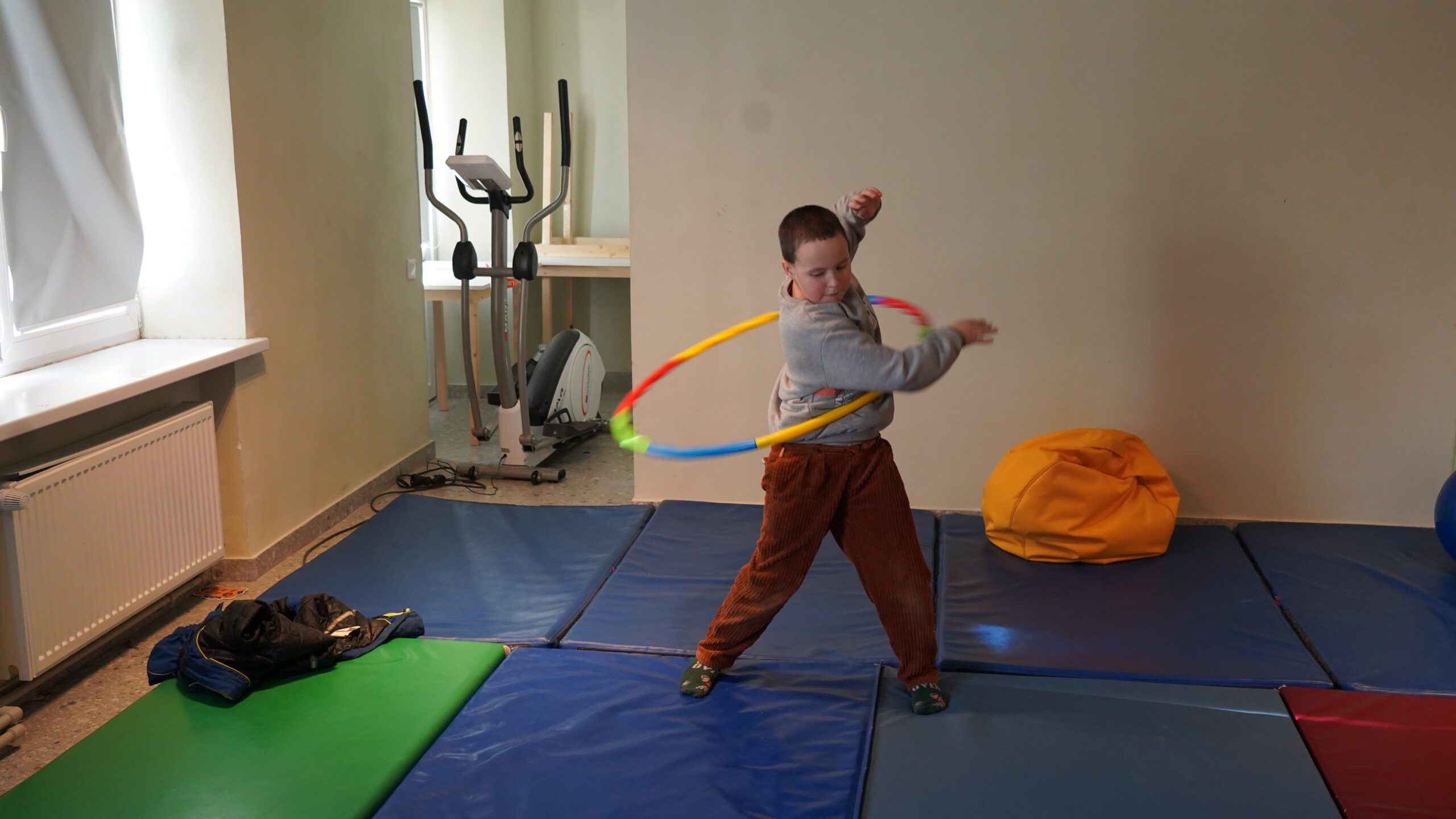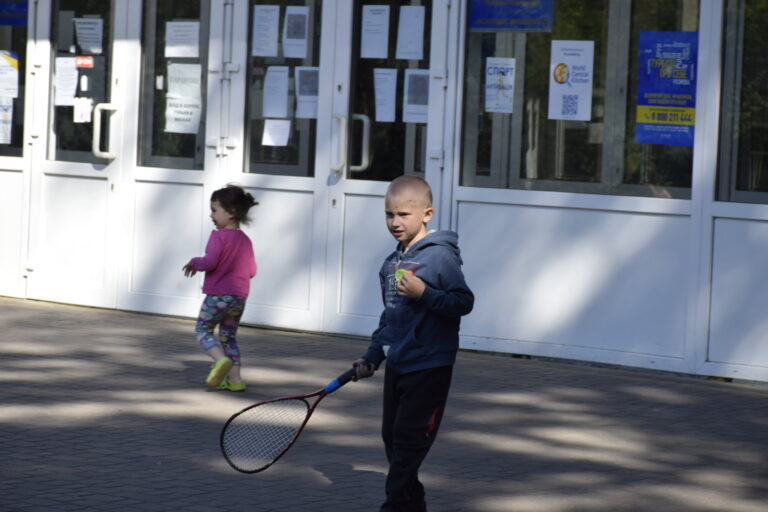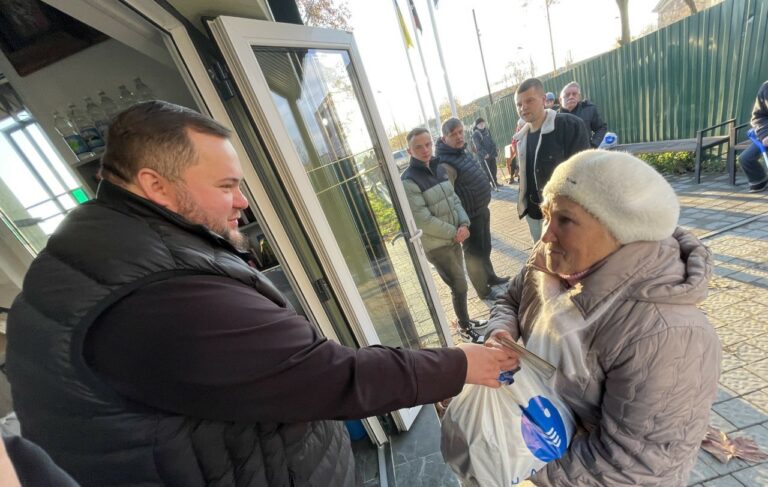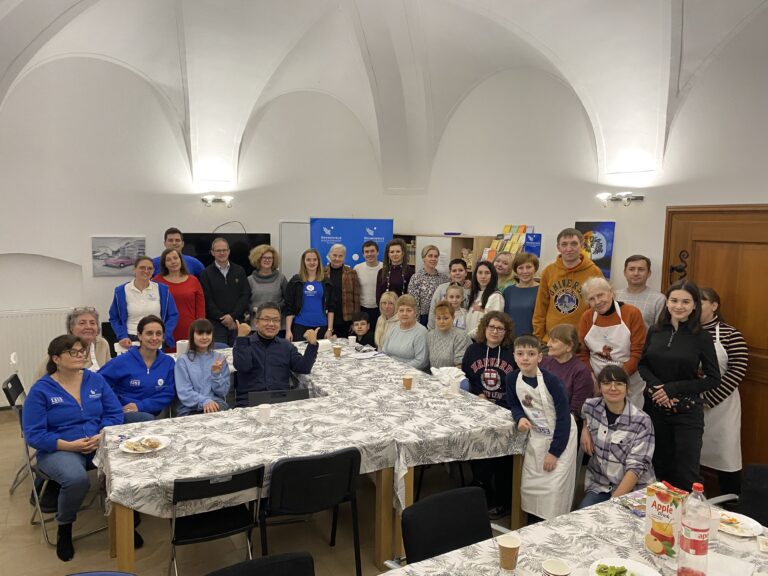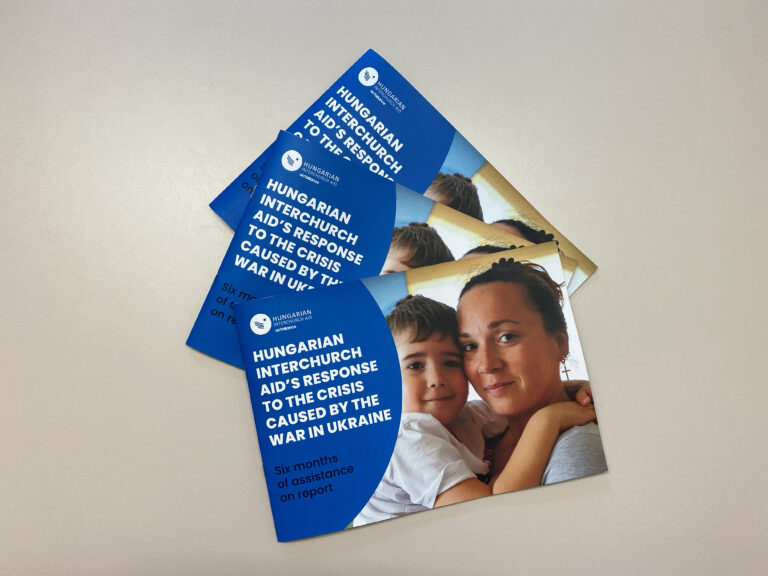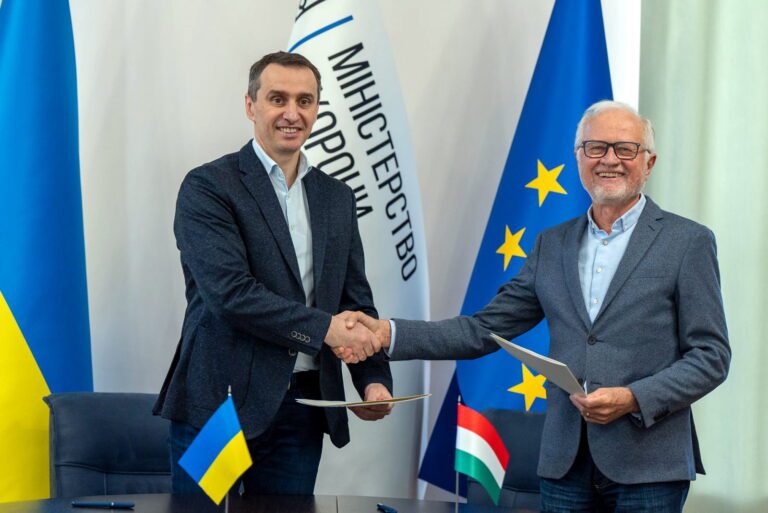Displaced helping displaced: supporting grassroot resilience through SCLR
Located in the safer western part of the country, Ivano-Frankivsk provides refuge for a flood of displaced people from the war-torn eastern regions of Ukraine. Driven from their homes by the brutality of war, 70 people found shelter in a former roadside inn that has now become their temporary home. In their struggle to start a new life away from home, they are supported by the survivor community-led response of Hungarian Interchurch Aid and ACT Alliance.
The initiative was started by four women, themselves displaced and new in Ivano-Frankivsk. Forming NGO “Charivni Runy” (Magic Runes) – they came together to build a sense of stability and community within the former roadside inn. The residents of the shelter hail from the settlements we know from the news – the destroyed cities of Bakhmut, Soledar, Lysychansk, Sievierodonetsk and the villages around them. They have arrived with very little, but with dedicated work and outside support they are gradually turning the shelter into a home away from home.
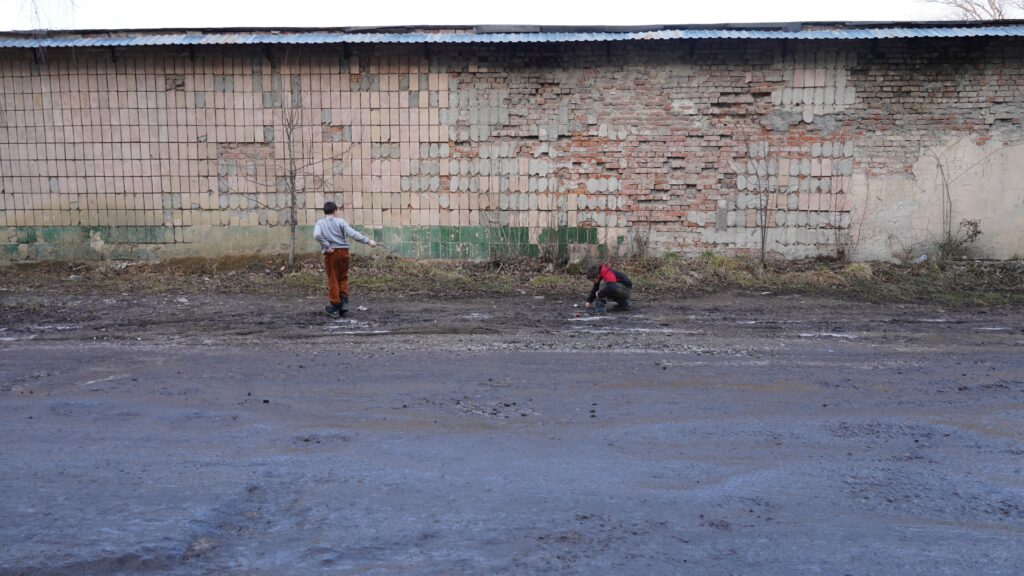

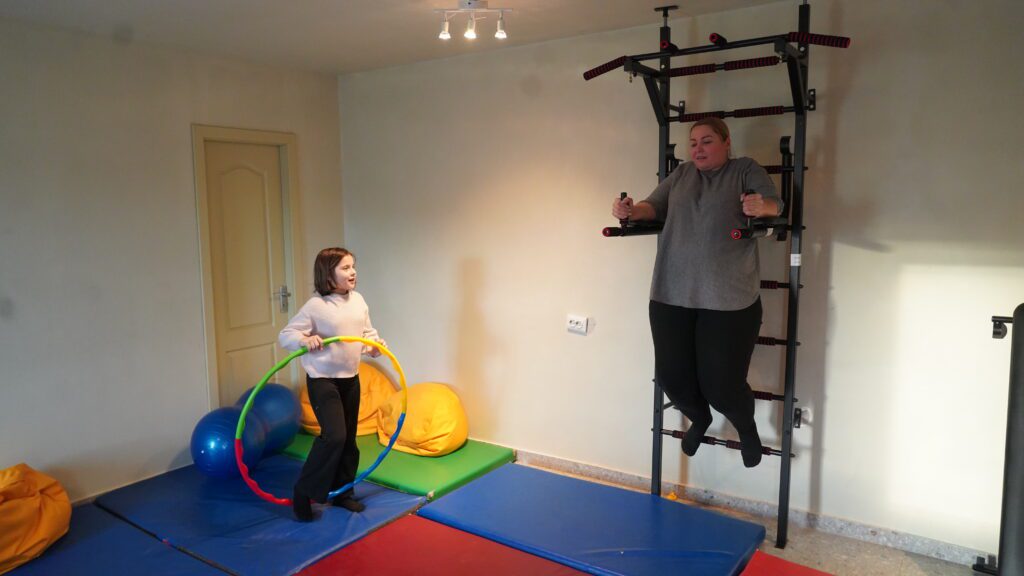

With beds and hygiene facilities in place, the next goal was to establish a proper kitchen that matches the amount of hungry mouths they have to feed. “Ukrainian women know how and love to cook delicious food” – say the women. The new kitchen bursts with aromas, inviting you to look in and see the new stoves and modern utensils, which were made possible by the sclr project. “Thanks to the cookware and stoves, we have reduced the waiting lines in the kitchen. Previously, there were 2-3 ladies standing over 1 stove, which was troublesome” – explains Yulia, a member of “Charivni Runy” and resident of the shelter.
However, their efforts went beyond just survival. Recognizing the need to take care of the environment, the residents of the shelter committed themselves to implementing a comprehensive waste management regime. From the youngest children to the oldest, each of them diligently sorts garbage, keeping in mind their ecological footprint. Their efforts have not only kept the environment clean and reduced waste disposal costs, but also generated a tiny income through recycling.
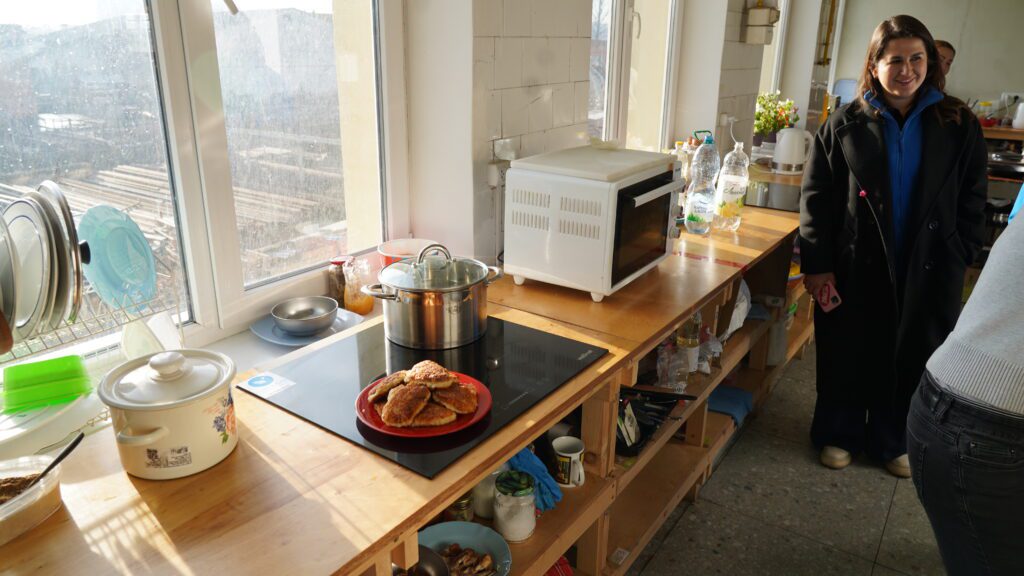

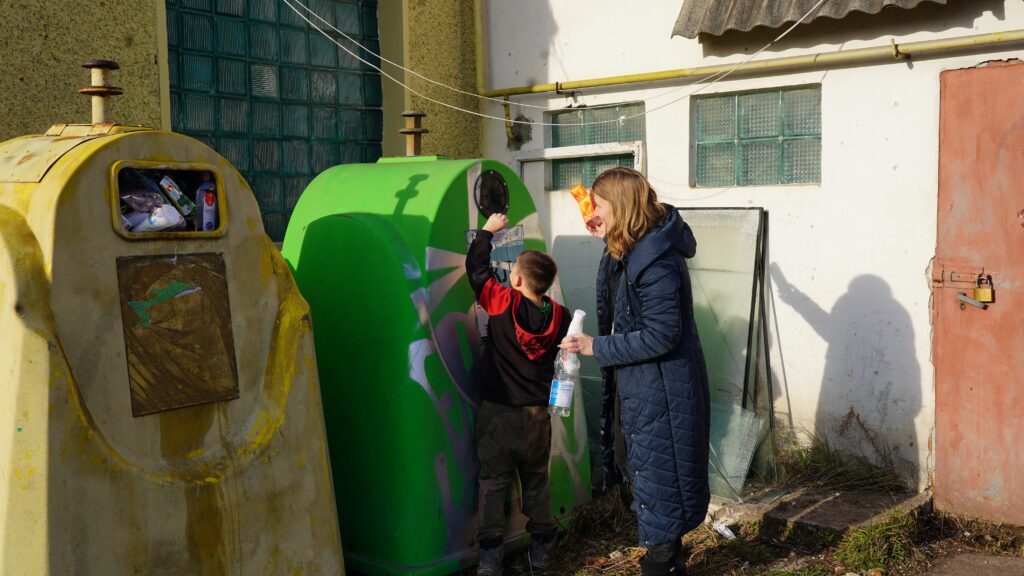

“It’s a tiny amount of money, but we saved it up and bought a few rose bushes that are looking forward to the arrival of spring.” By diligently composting organic waste from the shelter’s kitchen in a three-stage system in special containers purchased within the project, they will nourish these flowers, turning the shelter’s entrance into a living oasis in the middle of the industrial area that surrounds them.
But the most profound impact materialized in the form of a modest gym equipment, the third improvement in the shelter. For Oksana, whose weight had risen critically under the stress of displacement, this gesture was nothing short of life-changing. Armed with a yoga mat and a cardio treadmill, she began to work on herself, losing weight and regaining mobility that had been partially lost for a couple of months and created health problems.
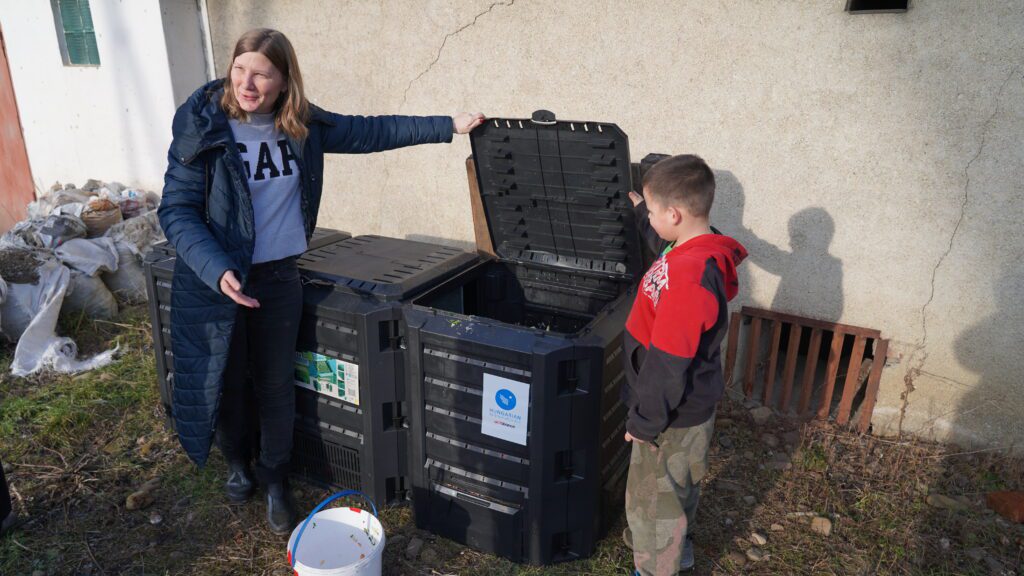

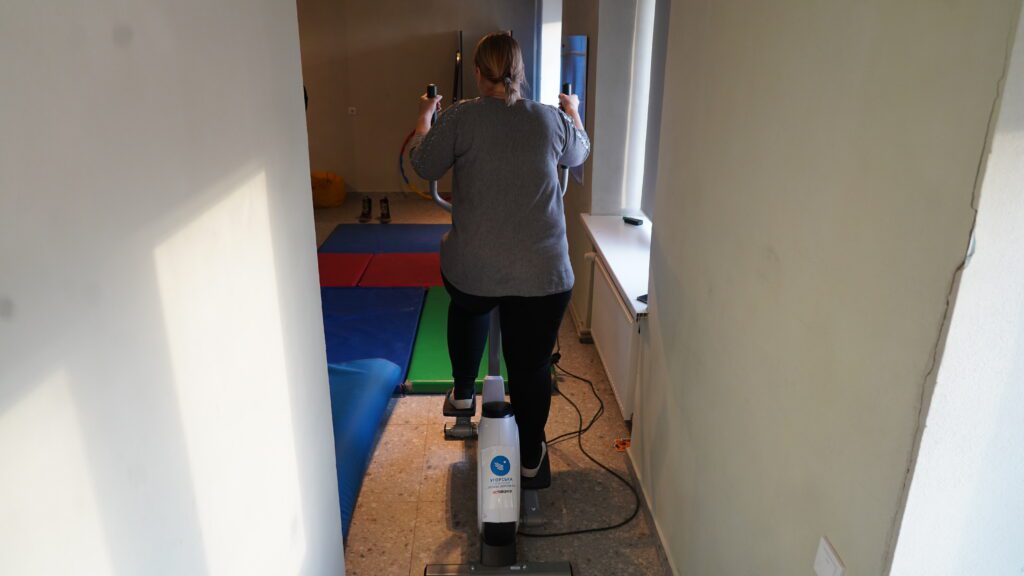

“It was a lifeline for me,” she says with tears in her eyes, “I was afraid of losing my mobility and becoming a burden to my daughter and my beloved one. “Thanks to the support of ACT Alliance and Hungarian Interchurch Aid, I not only lost 7 kilograms, but also regained my sense of dignity.” Her story, which is symbolic of countless others living in the shelter, emphasizes the transformative potential of microfinance. It is not just financial assistance, but a ray of hope that empowers communities and strengthens their resilience in the most adverse of circumstances.

